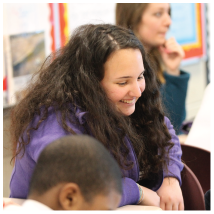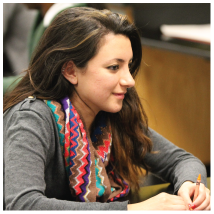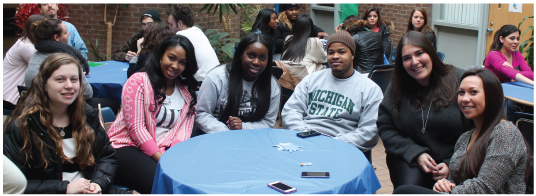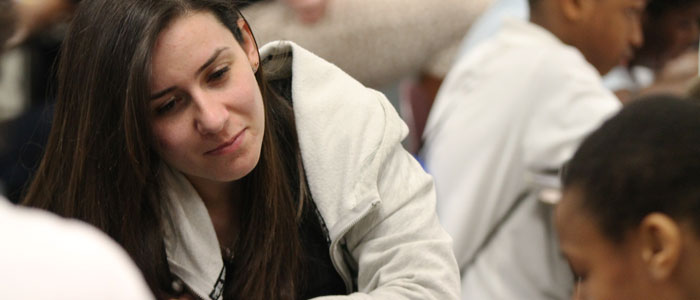What are Big Questions? Try these on for size:
Where do you feel at home?
Who is in your family?
How do we recharge?
How do we connect?
With smart phones, Facebook Friends and Instagram on hand, we talk about staying in touch, but really?
How do we truly connect?
Questions of identity, diversity and community are as old as Hillel (the Rabbi) himself, asking, “If I am not for myself, who will be for me? When I am for myself, what am I? And if not now, when?”
Today, at Hillel centers on college campuses across the country, students are put to the test to Ask BIG Questions with a new spin in a series of facilitated conversations designed to help diverse groups share their stories and find common ground for understanding.
Ask BIG Questions (ABQ) began as a Campus Entrepreneurship Initiative at Fiedler Hillel at Northwestern University. The program is now a national initiative of Hillel, the Foundation for Jewish Campus Life in partnership with the Einhorn Family Charitable Trust. ABQ was brought to Michigan State University via MSU Hillel in the fall of 2011.
 |
 |
 |
 |
||
Photo above: Students gather for basic training to Ask BIG Questions at Hillel MSU.
As part of the program, students are trained as fellows. Ask BIG Questions Fellows promote discourse by building a social network of students through one-on-one dialogue and, on a larger scale, by leading the ABQ Campaign. ABQ Fellows work with their supervisors to generate relevant questions to engage their peers in dialogue. Utilizing the questions they have generated and the social networks they have built, each fellow hosts two Ask Big Questions conversations and two Ask BIG Questions Forums throughout the year.
Additionally, ABQ works to develop meaningful conversations for student groups participating in Destination Detroit: Building Bridges – another program of MSU Hillel which brings participants together for a day-long excursion to Detroit where they tour the city, meet community leaders and engage in volunteer activities to benefit disadvantaged youth. Each month, on the evening prior to the trip, MSU Hillel hosts a communal dinner for the MSU participants. The group meets, interacts and engages in a meaningful, thought-provoking ABQ session, designed to provide a common starting point for the students to talk about their values, traditions, customs and background. The students who go through the training, in turn, facilitate these conversations and help bring about meaningful discussions.
Invaluable lessons
“What students learn through shared conversations is to open their eyes, their ears and their hearts to one another,” observes Robyn Hughey, MSU Hilllel Assistant Director and coordinator of the program. “It’s a powerful experience that often takes students out of their comfort levels. But through that exchange, students of diverse backgrounds come away stronger, more committed to community and with a basis for better understanding one another.”
Early in September, MSU Hillel held its ABQ “Basic Training “at Michigan State University to introduce student leaders to the essential “ground rules” and guidelines to Ask Big Questions, as well as train them in facilitating conversations. The program prepared them to use conversation “prompts” available through ABQ as a means to infuse Big Questions into day-to-day campus life. The training was facilitated by Anna Langer, Assistant Director of Ask Big Questions and Oren Persing, Assistant Director of Jewish Student Life at Berkley Hillel. Participants included nearly 30 students from MSU Hillel, as well as MSU Jewish Student Union and Student Government leaders and HCAM (Hillel Campus Alliance of Michigan) ABQ interns from Central Michigan University, Eastern Michigan University, Grand Valley State University, Saginaw Valley State University and Western Michigan University.
Commenting on the effectiveness of the program, Olivia Berlin, a Destination Detroit Intern and senior at MSU from West Bloomfield, observed, “Ask Big Questions takes a group of strangers and transforms them into a coalition of peers who appreciate each other’s differences. Additionally, the program enhances Destination Detroit: Building Bridges by creating an atmosphere conducive to teamwork, allowing students to positively work together while volunteering. For the long run, the training taught me how to talk about many issues and made me realize that there are more productive ways to deal with sensitive topics — as opposed to having a debate or closed conversation.”




